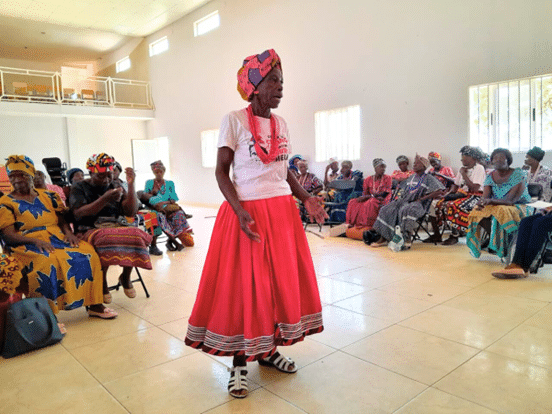In Malawi, there are limited opportunities for nurses and midwives, and many leave the country in pursuit of different positions or quit the field altogether. It’s a trend which contributes, in part, to the high vacancy rate in the profession. Yet in Malawi, where nurses provide nearly 90 percent of patient care, retaining nurses is not only important to meet the population’s health needs, but essential to the scale up and maintenance of ambitious HIV prevention, care and treatment programs.
To address the challenge of nurse and midwife retention ICAP partnered with Malawi’s Ministry of Health (MOH) and Kamuzu College of Nursing through the Nursing Education Partnership Initiative (NEPI) to develop and implement the first doctoral program for nurses and midwives in Malawi. With funding from PEPFARthrough HRSA, ICAP and partners trained faculty and developed an evidence-based curriculum, creating the PhD program in Inter-Professional Health Care and Leadership. The program launched in July 2014 with a cohort of seven nursing students, four of whom received scholarships through NEPI.
“Inter-professional collaboration” involves clinicians, nurses and laboratory and pharmacy technicians working together as a team with the goal of providing holistic and complementary care for patients. In Malawi, where there is a high disease burden coupled with a shortage of health workers, this approach is viewed as a necessary step to improve access and coordination, and efficient use of resources across the health sector.
“Inter-professional collaborative practice is key to safe, high-quality, accessible patient-centered care,” said Sheilla Bandazi, director of nursing and midwifery at Malawi’s MOH. “Achieving this vision requires the development of inter-professional competencies in health profession students as part of the learning process, so students join the workforce ready to practice effective team-based care.”
By going beyond treatment delivery, the new doctoral program is cultivating nurse leaders and increasing the number of decision makers at all levels of the health workforce.
“No one profession can address HIV alone,” said Dr. Lyn Middleton, regional nursing advisor at ICAP. “Partnerships and collaborations are essential to delivery of services and the creation of new approaches.”
The students currently enrolled in the program will benefit from a curriculum that prepares nurses to address complex, individual, family, community and societal issues related to HIV.
This past month, the seven doctoral students selected research topics ranging from the role of model wards in delivery of care to understanding the experience of preceptors in clinical teaching.
“As a program, its effects are already being harnessed,” said Gertrude Chipungu, ICAP country director in Malawi. “Their research responds to very pertinent and relevant issues that will promote collaboration among health providers in HIVservices and encourage new thinking and evidence-based policy development.








